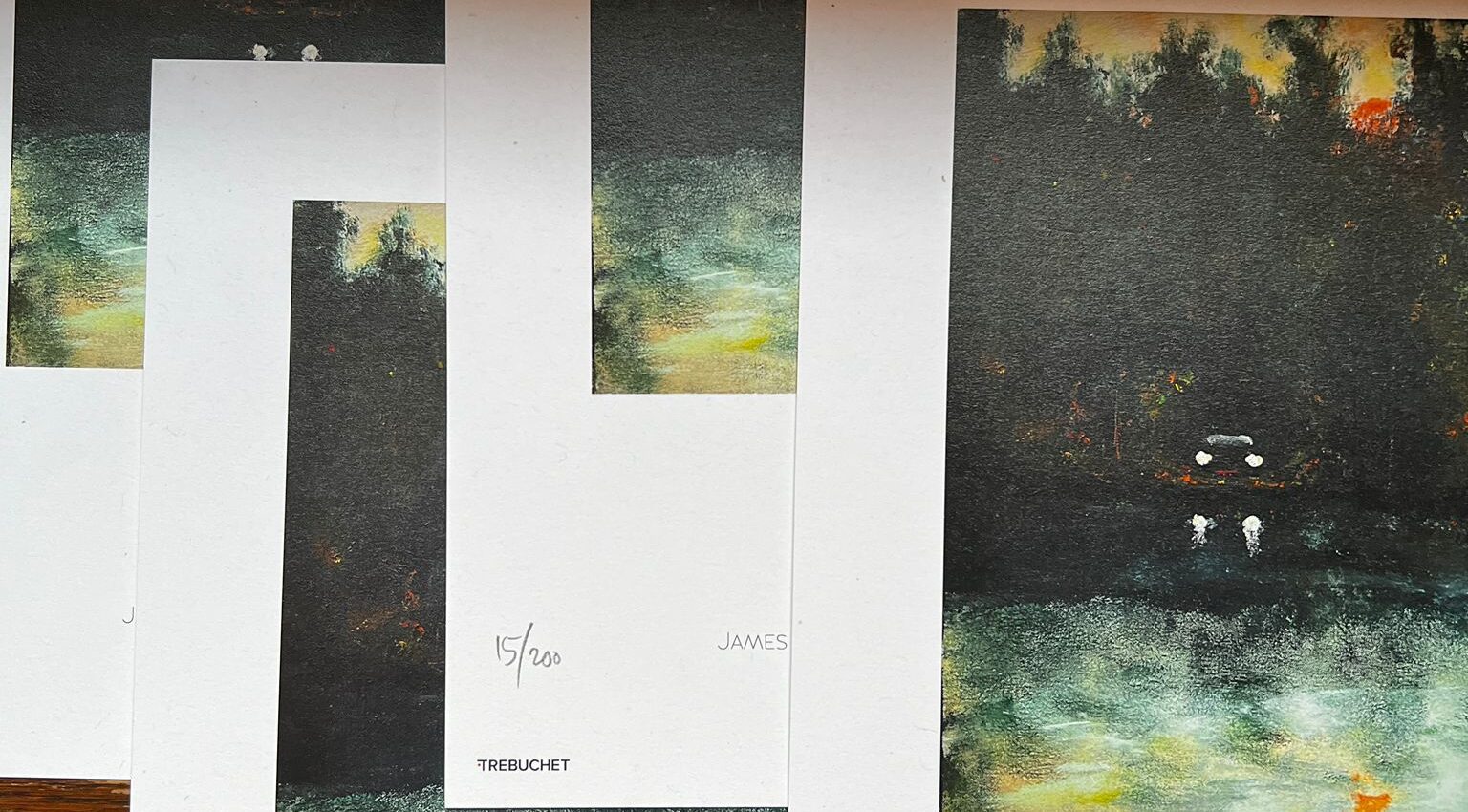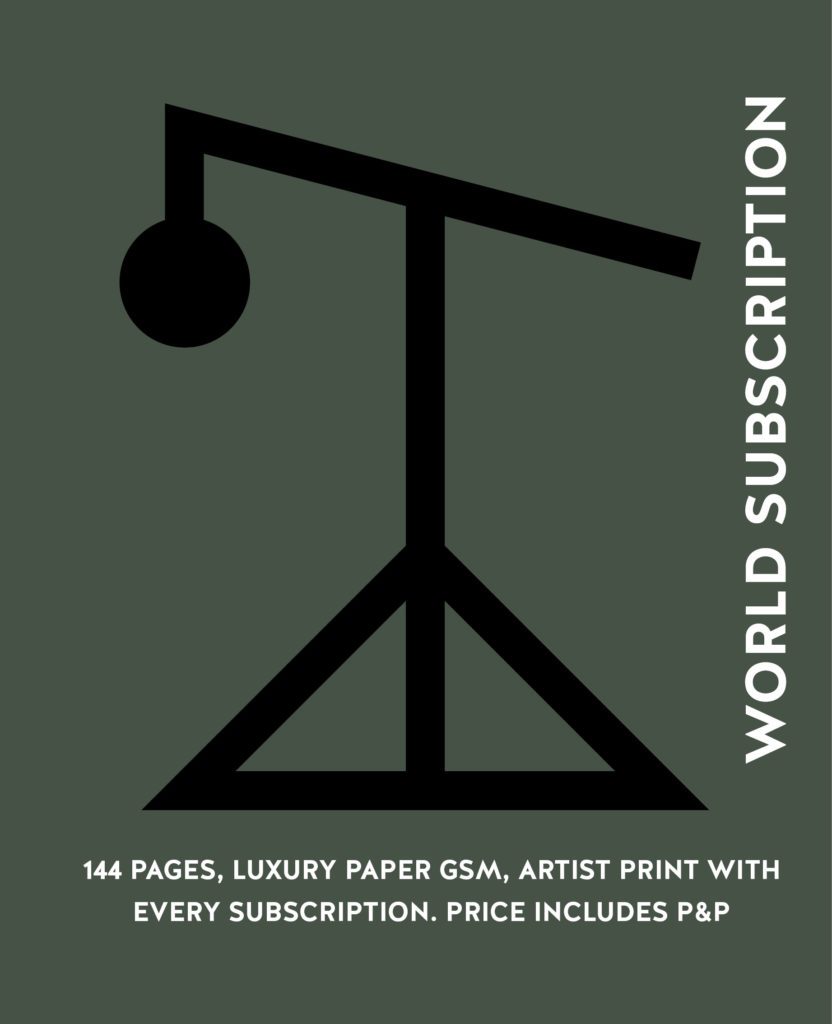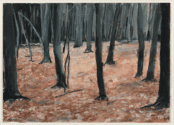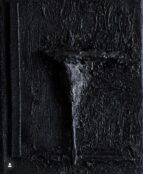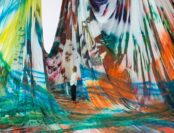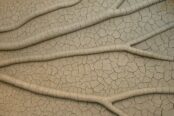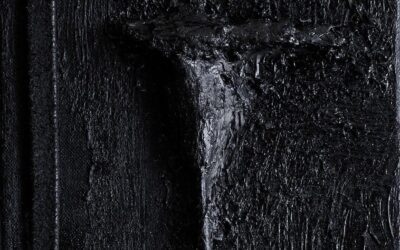“Like a lot of my work, there’s an open narrative to this painting, and part of what makes it interesting for me is how it sits between benign and malevolent.
I like the composition, in particular the skyline above the trees, which changed over and over before I felt the balance was right. The handling of paint in this one, and hopefully the visible enjoyment of applying it, is something that works for me too. There are several different techniques used on it, all of which are things I’ve learned over time through trial and error and by looking at other people’s work. I wanted it to look beautiful.
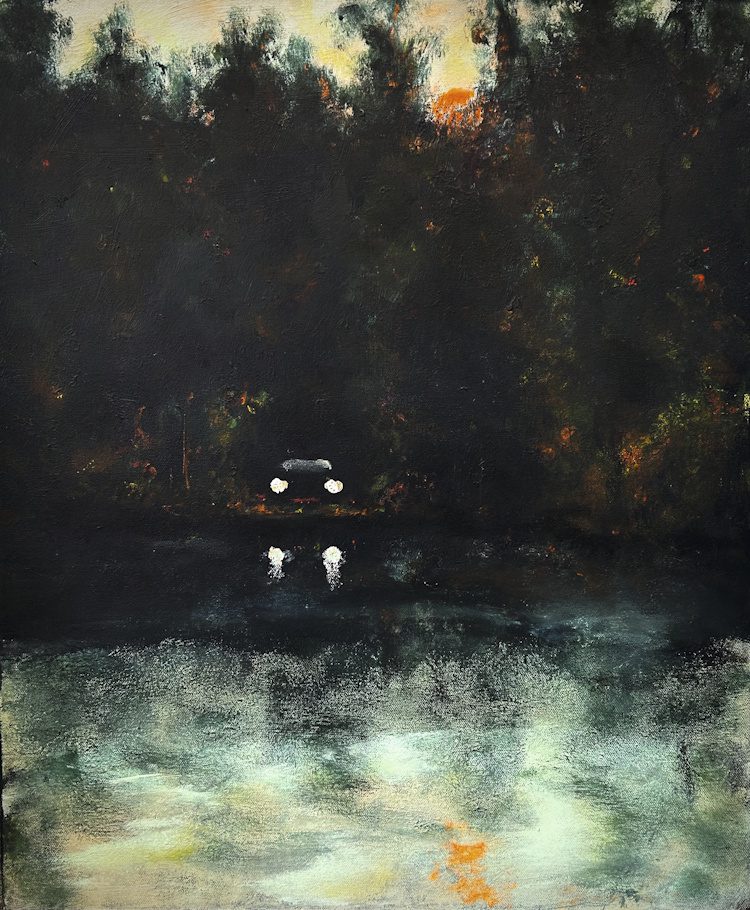
It was completed for my last London solo show ‘Illuminated’, and I spent a lot of time talking to people about this one in particular, of how it reminded people of Scandinavian and Canadian landscape painters, the cinematic feel of it, and how it had a kind of enigmatic menace. It became a key painting in the show.”
Trebuchet is delighted to announce that we’ve again got a great print from Johnston for new subscribers.
About James Johnston
Born in 1966, painter and musician James Johnston has primarily been known for his work as a musician, with his own band Gallon Drunk, as a former member of Nick Cave and the Bad Seeds, and more recently for touring and recording with PJ Harvey.
His paintings are both bold and loose, marked by their rich and striking use of colour. The often unsettling, darkly humorous and totemic images are based between the everyday and the world of the imagination, grounded with a sense of simplicity and beauty.
A prolific painter, Johnston’s work has been used on book covers, as album artwork and featured in a variety of international arts publications, with paintings in the collection of the University of Chicago Center in Paris.
“A remarkable gift for loose, raw painting… that straightaway imprints itself on the viewer’s imagination” – The Economist.
“Paintings full of mythic power.” – Nick Cave

The aim of art is to represent not the outward appearance of things, but their inward significance. – Aristotle

